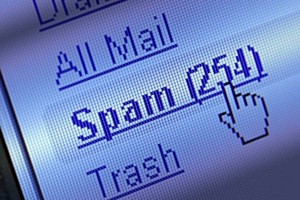eBay has become aware of a security breach that compromised a database that included encrypted passwords. eBay officials note that no financial data was implicated. In addition to passwords, the database contained basic information like name, email, phone number, address, and date of birth, but eBay officials stressed that no confidential or personal information was […]

LOYOLA UNIVERSITY CHICAGO • March 2, 2026
Loyola Information Security Blog
University Information Security Office
Search
Recent Post
- February 2026 Newsletter: Electronic Gift card Scams are on the rise
- Happy New Year from UISO: Set a Cyber Resolution for 2026
- MFA – Why it matters
- October is National Cybersecurity Awareness Month
- Watch out for “E-Signature” Phishing Scams
Archives
- February 2026
- January 2026
- November 2025
- October 2025
- September 2025
- August 2025
- July 2025
- June 2025
- April 2025
- March 2025
- February 2025
- October 2024
- September 2024
- August 2024
- July 2024
- June 2024
- February 2024
- January 2024
- November 2023
- October 2023
- August 2023
- July 2023
- June 2023
- May 2023
- March 2023
- February 2023
- January 2023
- November 2022
- October 2022
- September 2022
- August 2022
- May 2022
- March 2022
- February 2022
- January 2022
- December 2021
- November 2021
- October 2021
- September 2021
- August 2021
- July 2021
- June 2021
- May 2021
- April 2021
- March 2021
- February 2021
- January 2021
- December 2020
- November 2020
- October 2020
- August 2020
- July 2020
- June 2020
- May 2020
- April 2020
- March 2020
- February 2020
- January 2020
- November 2019
- October 2019
- September 2019
- August 2019
- July 2019
- June 2019
- May 2019
- April 2019
- March 2019
- February 2019
- January 2019
- December 2018
- November 2018
- October 2018
- September 2018
- August 2018
- July 2018
- June 2018
- May 2018
- April 2018
- March 2018
- February 2018
- January 2018
- December 2017
- November 2017
- October 2017
- September 2017
- August 2017
- July 2017
- June 2017
- May 2017
- April 2017
- March 2017
- November 2016
- October 2016
- September 2016
- August 2016
- July 2016
- June 2016
- May 2016
- April 2016
- March 2016
- February 2016
- January 2016
- November 2015
- October 2015
- September 2015
- August 2015
- July 2015
- June 2015
- May 2015
- April 2015
- March 2015
- February 2015
- January 2015
- December 2014
- November 2014
- October 2014
- September 2014
- August 2014
- July 2014
- June 2014
- May 2014
- April 2014
- March 2014
- February 2014
- January 2014
- December 2013
- November 2013
- October 2013
- September 2013
- August 2013
- April 2013
Mykael Baig
Credit Card Breach at P.F. Chang’s Bistro
June 12th, 2014
It has been reported that P.F. Chang’s China Bistro is investigating a possible data breach involving credit card data reportedly stolen from locations nationwide. On June 9, thousands of stolen credit cards went up for sale at an underground store known for selling credit cards associated with the Target breach earlier this year. Banks have […]

Watch Out for New PayPal Phishing Attempt
June 26th, 2014
It is possible that the information used in these phishing emails may come from the eBay breach that occurred earlier this year. This phishing attempt contained both a PayPal address and a company name that are on file for a specific account. “Phishing mails always start with a generic ‘Dear customer’ or ‘Dear Client,’ […]
February Edition of OUCH!: Protecting Yourself Against Malware
February 5th, 2014
SANS has released their February edition of OUCH! filled with information about malware and how to protect yourself. “We are excited to announce the February edition of OUCH! This month, led by Guest Editor Lenny Zeltser, we explain what malware is, who is developing it, why and how to protect yourself against it. In addition, […]
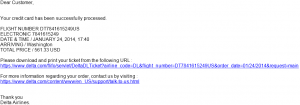
January 22, 2014 Phishing Report
January 22nd, 2014
(click to enlarge image) The first link in this phishing attempt directs you to third party website where it captures a user’s credit card information and downloads malware in the background. (click to enlarge image) This second phishing attempt directs you to a web portal which asks for your student account information. The number […]
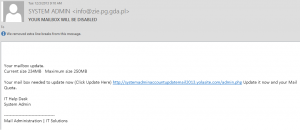
December 3, 2013 Phishing Report
December 3rd, 2013
This is the latest phishing email reported to the Information Security Office: Clicking the link directs you to enter your credentials into a form. Don’t forget, Loyola will never send you an email containing a link to provide your username and password. As always, if you receive a suspicious email, forward it to datasecurity@luc.edu.
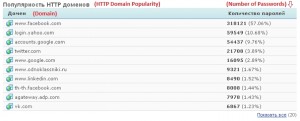
2 Million Passwords Stolen
December 6th, 2013
On December 3rd, cyber security firm Trustwave announced that they discovered that hackers have stolen two million passwords from 93,000 websites, including Facebook, Twitter, Yahoo, Linkedin and Google. According to Trustwave, passwords were obtained using keylogging software and is part of a new botnet. The massive campaign started on October 21st with only one proxy […]
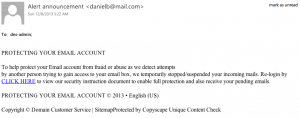
December 8, 2013 Phishing Report
December 8th, 2013
This is the latest phishing email reported to the Information Security Office. Clicking the link directs you to enter your credentials into a form. Don’t forget, Loyola will never send you an email containing a link to provide your username and password. As always, if you receive a suspicious email, forward it to datasecurity@luc.edu.
